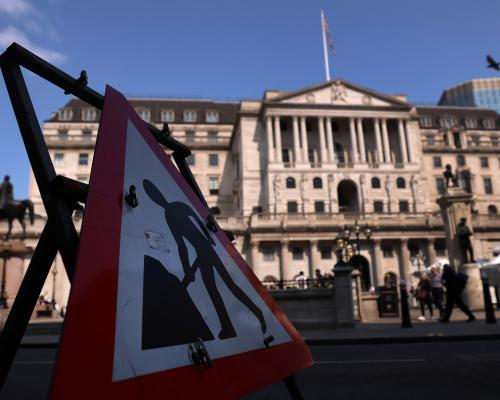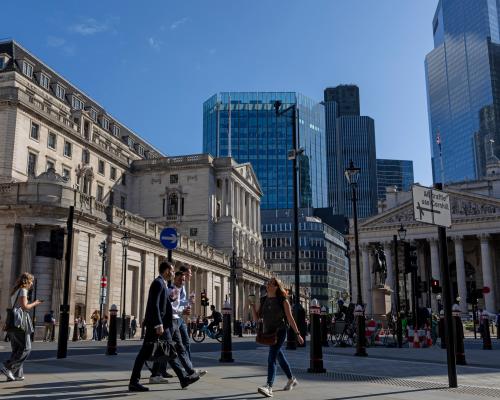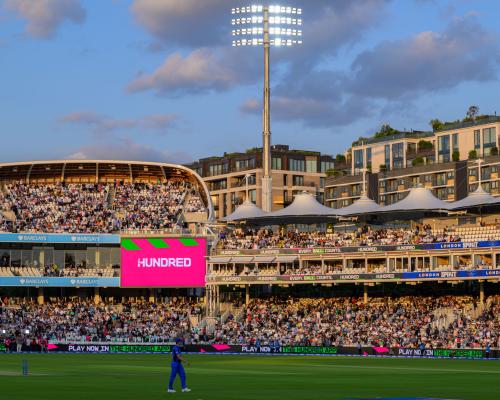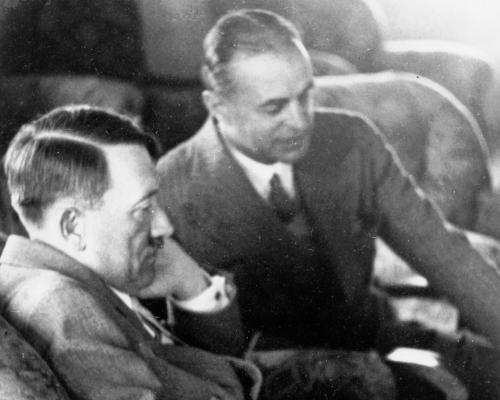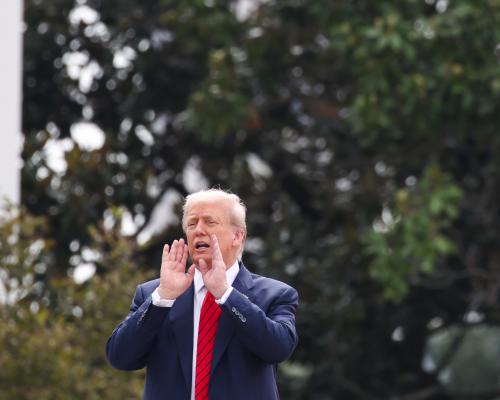
7.23am BST
Trump claims tariff money will flow into US
Donald Trump hailed the new tariffs which kicked in at 5am UK time, or just after midnight on the US east coast.
The US president repeated his claim that money was now “flowing” into the US, even though it is US importers who will stump up these new levies on goods from overseas.
Writing on his Truth Social site, Trump says:
IT’S MIDNIGHT!!! BILLIONS OF DOLLARS IN TARIFFS ARE NOW FLOWING INTO THE UNITED STATES OF AMERICA!
Trump also challenged the US courts not to block him, saying:
RECIPROCAL TARIFFS TAKE EFFECT AT MIDNIGHT TONIGHT! BILLIONS OF DOLLARS, LARGELY FROM COUNTRIES THAT HAVE TAKEN ADVANTAGE OF THE UNITED STATES FOR MANY YEARS, LAUGHING ALL THE WAY, WILL START FLOWING INTO THE USA. THE ONLY THING THAT CAN STOP AMERICA’S GREATNESS WOULD BE A RADICAL LEFT COURT THAT WANTS TO SEE OUR COUNTRY FAIL!
7.17am BST
Dozens more countries face higher taxes on exports to US as new Trump tariffs come into effect
Dozens of countries face higher taxes on their exports to the US now that Donald Trump’s latest wave of country-specific tariffs has come into force.
The sweeping “reciprocal” levies announced by the White House a week ago – just before a previous 1 August deadline was due to elapse – were in place as of a minute past midnight Washington time on Thursday.
Key details of Trump’s latest tariffs include:
-
The rates range from 41% on Syria, 40% on Laos and Myanmar and 39% on Switzerland to 10% for the UK.
-
The levies will be on top of the usual tariffs applying to US-bound goods. Brazil’s “reciprocal” rate is 10%, for example, but its total levy is 50% after Trump added a 40% levy over the prosecution of ex-president Jair Bolsonaro.
-
India’s 25% tariff rate could rise to a total of 50% after Trump imposed an additional charge for buying oil from Russia.
-
The European Union is the only US trading partner where its baseline rate – set at 15% after a framework deal – will include previous tariffs. It means, for example, cheeses that are normally hit with import duties of 14.9% will be taxed at 15% and not 29.9%.
-
Trump first unveiled the raft of country-specific rates on 2 April, which he called “liberation day”, claiming the world had long been ripping off the US.
-
On Wednesday, meanwhile, Trump said he would impose a 100% tariff on computer chips – likely raising the cost of electronics and household goods – but that US-produced chips would be exempt.
7.17am BST
Introduction: Bank of England interest rate decision today
Good morning, and welcome to our rolling coverage of business, the financial markets and the world economy.
With the UK economy looking weak, but inflation rumbling away, and a trade war raging, these are tricky times to be a central banker.
And at noon today, the Bank of England will reveal whether its policymakers have decided to lower borrowing costs, or leave them unchanged – and, significantly, whether they all agreed on the decision!
The City is widely expecting a quarter-point cut in interest rates, to bring Bank rate down from 4.25% to 4%. Some of the nine members of the BoE’s monetary policy committee may push for a deeper cut, fearing that rising unemployment and weakening economic activity is flashing the alarm.
On the other side of the table, though, hawkish MPC members may point to inflation – which rose to 3.6% in June – as a reason to leave rates on hold.
Guillermo Felices, global investment strategist at PGIM Fixed Income, says a 25 basis point (quarter-point) cut is “almost a done deal”, adding:
We expect a further 50bps of rate cuts over the 3 following meetings, as the Monetary Policy Committee begins to put more weight on the weak labour market.
There are MPC members that already see a greater urgency to cut rates, as indicated by the 6-3 vote split to hold at the last meeting.
The Bank also has to weigh up the impact of Donald Trump’s trade war. The UK’s trade deal with the US means the direct impact from tariffs is relatively limited, but there is the global situation to consider too.
Earlier this morning, the latest wave of country-specific tariffs came into force, a week after Trump announced them.
Switzerland failed to reach a last-minute deal to lower its rate from 39%. Swiss president Karin Keller-Sutter reportedly left Washington empty-handed last night, following a meeting with US Secretary of State Marco Rubio.
The agenda
-
7am BST: Halifax house price index for July
-
Noon BST: Bank of England interest rate decision
-
12.30pm BST: Bank of England press conference
-
1.30pm BST: US weekly jobless report


